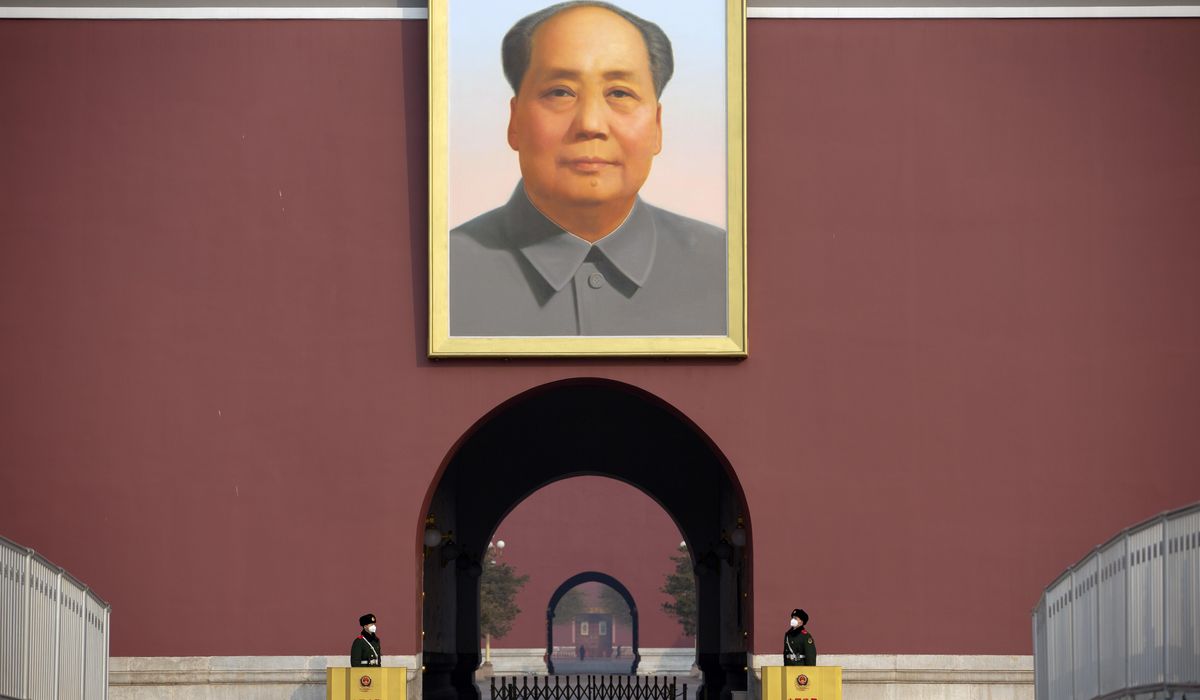

A Chinese scientist who pleaded guilty to U.S. economic espionage charges on Thursday was recruited by the Chinese government as part of a foreign spying program that recruited people with access to foreign trade secrets and technology sought by Beijing.
Xiang Haitao, a former scientist with Monsanto, and permanent U.S. resident, was arrested in November 2019 upon returning to the United States after working in China and helping Beijing utilize a proprietary commercial U.S. technology system designed to increase farm output.
After initially pleading not guilty to a federal indictment for economic spying, Xiang, 44, changed his plea to guilty in federal court in the Eastern District of Missouri in St. Louis. The plea agreement revealed Xiang was recruited by the Chinese Academy of Science, the Beijing government’s science program, as part of a program called the Hundred Talents Program in 2016.
<!– Temp removal of in article reco
End comment –>
The program, also sometimes known as the Thousand Talents Program, has produced scores of FBI investigations and prosecutions of more than a dozen Chinese nationals and Americans who U.S. investigators charge have been working secretly for China at American universities and research centers.
The Trump administration in 2017 estimated in a report on Chinese economic “aggression” that Beijing has been stealing an estimated $250 billion to $600 billion annually in American technology and know-how.
From 2008 to 2017, Xiang worked as an agricultural imagery specialist for a Missouri company called The Climate Corp., which was purchased by St. Louis-based Monsanto in 2013. In 2017, Xiang quit Monsanto and left the country with details of the company’s Nutrient Optimizer, a proprietary predictive algorithm software designed to allow farmers to apply plant nutrients in optimal applications.
The software merged weather data, soil information and farm management practices, allowing farmers to monitor fertilizer needs and future fertilizer applications.
The plea agreement states that in mid-2015, Xiang reached out to the Chinese Academy of Science and its Nanjing Institute of Soil Science, which works on agricultural development.
In an email to the Nanjing Institute, he asked to be hired as part of the Hundred Talents Program, first launched in 1994 to recruit high-level talent.
“I have been the senior research fellow at US Monsanto Company since February 2008, mainly working on the research and application of large agricultural data, agricultural smart information system, agricultural spatio-temporal analysis models, crop phenotyping and monitoring, unmanned aerial vehicle agricultural remote sensing, hyperspectral remote sensing, agricultural sensor, etc,” Xiang stated in a 2016 email.
“Utilizing the relevant advantages afforded by the research, human capital and resources of [the institute], I plan to independently develop a smart digital agricultural fertilizer application management platform on the basis of big data,” he added.
The goal of the Chinese platform would be to employ the so-called Internet of Things, cloud computing, big data and intelligence analysis and information for soil nutrient management and precision fertilizer use.
“This platform will create a world-class precision fertilizer application solution, achieving rapid, low-cost popularization and promotion,” he said.
According to the plea, in February 2016, Xiang downloaded the Nutrient Optimizer from Monsanto’s computers to his work laptop and later placed it on a flash drive.
As he was leaving on a flight from Chicago to Shanghai on June 10, 2017, Customs and Border Protection agents searched his carry-on luggage and found an 86-page document on the Nutrient Optimizer. Xiang then proceeded to China and worked for the Hundred Talents Program, operating a laboratory at the Nanjing Institute.
He was arrested in 2019 upon his return to the United States and later indicted.
By putting the Nutrient Optimizer on a micro card and taking it back to China, “the defendant intended and knew that the trade secret would benefit the CAS, a foreign instrumentality, and the PRC, a foreign government,” the plea states.
Xiang’s LinkedIn page states that he worked at Monsanto as an advanced imagery scientist and had been educated at the University of Illinois Urbana-Champaign and the Nanjing Forestry University.
Sentencing is set for April. The maximum sentence for the single charge of conspiracy to commit economic espionage is 15 years in prison and a $5 million fine.
“Despite Xiang’s agreements to protect Monsanto’s intellectual property and repeated training on his obligations to do so, Xiang has now admitted that he stole a trade secret from Monsanto, transferred it to a memory card and attempted to take it to the People’s Republic of China for the benefit of Chinese government,” said Matthew G. Olsen, assistant attorney general with Justice’s National Security Division. “With his guilty plea, Xiang is now being held accountable for this unlawful conduct.”
Said FBI Assistant Director for Counterintelligence Alan E. Kohler: “The American worker suffers when adversaries, like the government of China, steal technology to grow their economies.”
“It’s not just military technology developed in secret labs that adversaries want; in this case, it was agricultural technology used by American farmers to improve crop yields,” he added.
Xiang’s lawyer, Vadim A. Glozman, said he plans to appeal a court motion to suppress certain information in the case.
“Our intentions are to get Haitao back to his family as soon as possible and to appeal the denial of his motion to suppress,” Mr. Glozman said. “During its investigating, the way in which the government was able to sidestep the protections of the Fourth Amendment, if upheld, would have far-reaching effects on everyone in this country. We look forward to litigating this issue on appeal.”
